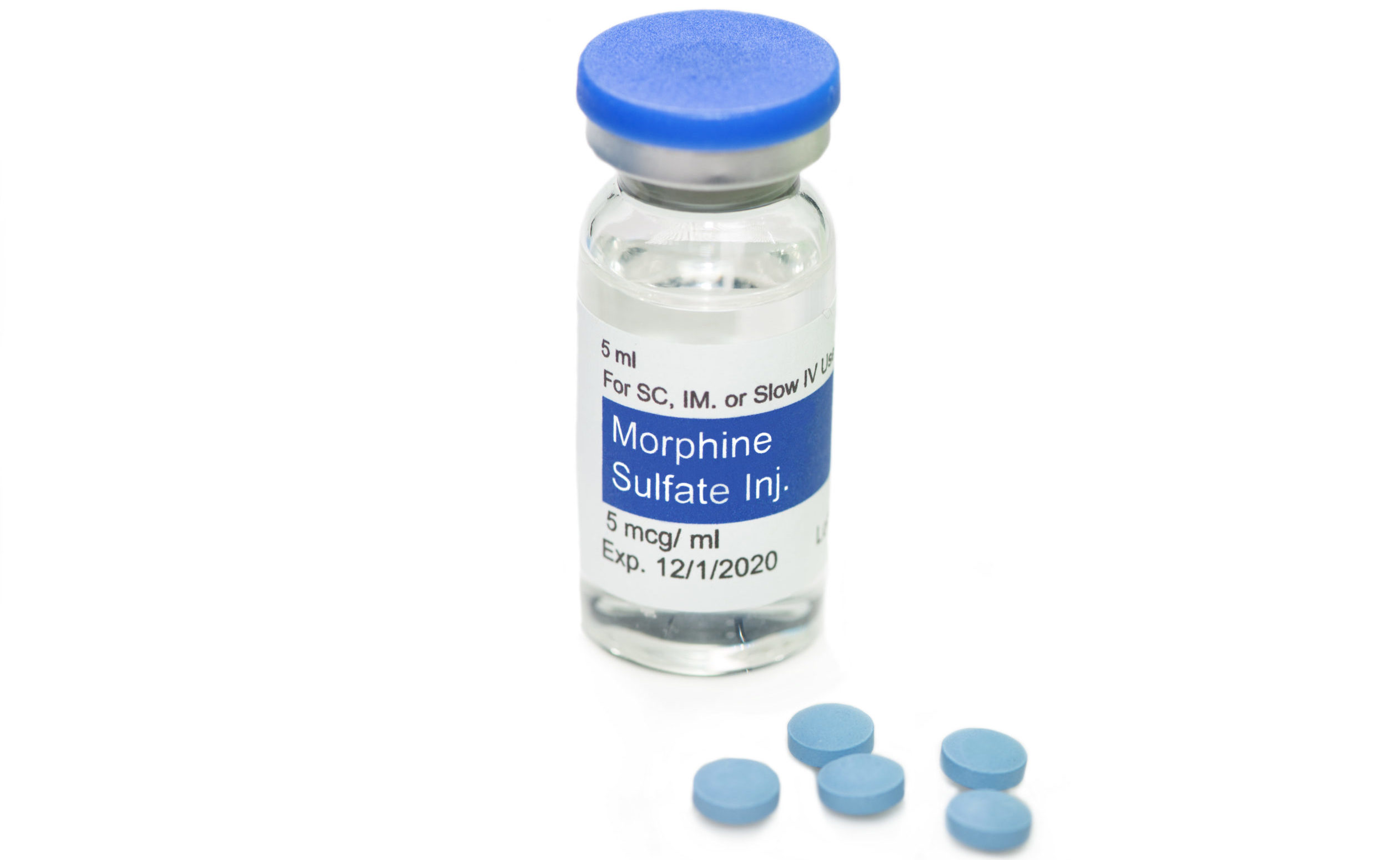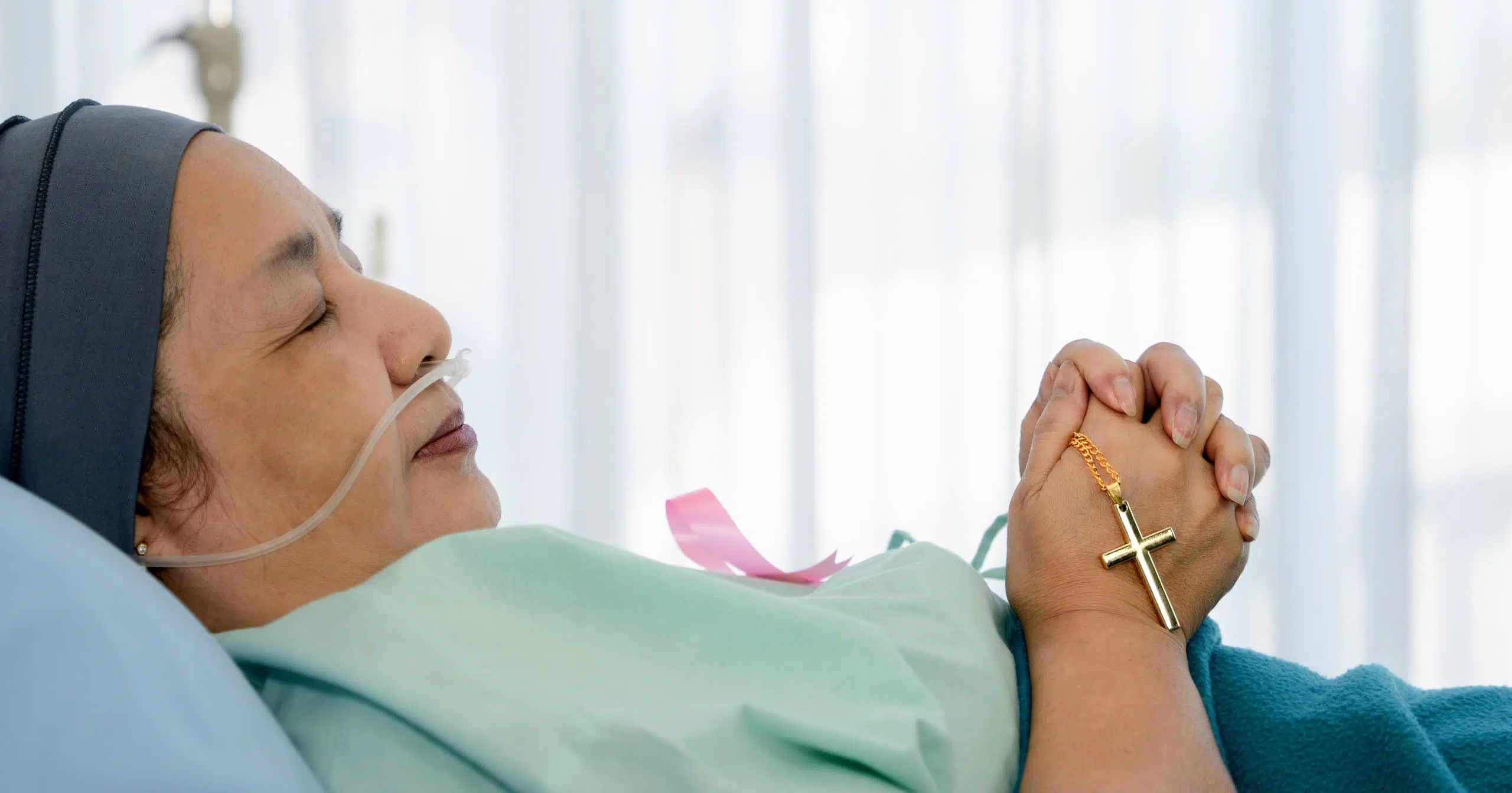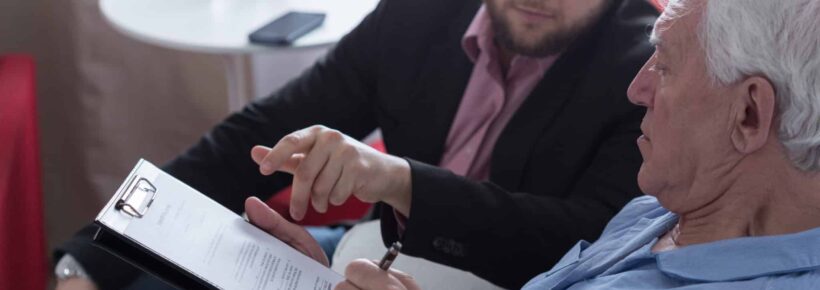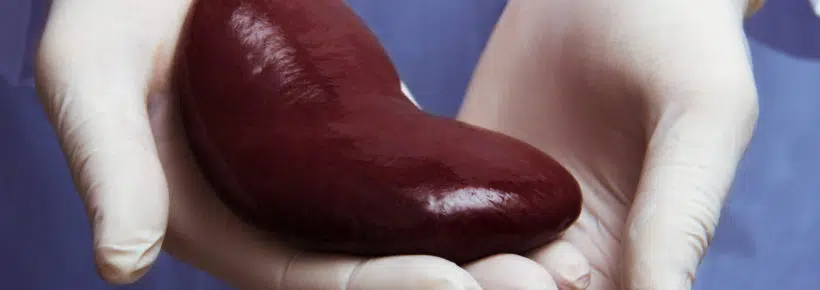As we or our loved ones get older and begin to consider advance medical directives, we should also think about the question of pain and how we intend to deal with it. Those who diligently practice their Catholic faith commonly ask three questions regarding the ethics of pain management drugs near the end of life:
- May they be used if they unintentionally shorten the life of the person?
- May they be used if they induce semi-consciousness?
- May they be used if they induce total unconsciousness?

Drugs that Shorten a Person’s Life
Regarding the first question, the Church teaches that it is permissible to use painkillers that dull severe pain, even if they shorten the life of the patient. This is an application of the principle of “double effect,” which states that it is sinful to shorten the life of a person deliberately. However, if the primary purpose of a drug is to relieve severe pain, and the shortening of a patient’s life is merely a predictable side effect, administering the drug is permissible.
As always, the intent of the treatment is the key to the principle of double effect.
The most important point is that the shortening of life must be insignificant in such a case. Double effect is most definitely not a loophole that allows the administration of lethal overdoses of painkillers to those who could otherwise live for months or even years.
The Catechism of the Catholic Church teaches:
Even if death is thought imminent, the ordinary care owed to a sick person cannot be legitimately interrupted. The use of pain-killers to alleviate the sufferings of the dying, even at the risk of shortening their days, can be morally in conformity with human dignity if death is not willed as either an end or a means, but only foreseen and tolerated as inevitable. Palliative care is a special form of disinterested charity. As such it should be encouraged [¶2279].
The Vatican’s Declaration on Euthanasia further clarifies this point:
In answer to a group of doctors who had put the question: “Is the suppression of pain and consciousness by the use of narcotics….permitted by religion and morality to the doctor and the patient (even at the approach of death and if one foresees that the use of narcotics will shorten life)?” the Pope [Pius XII] said: “If no other means exist, and if, in the given circumstances, this does not prevent the carrying out of other religious and moral duties: Yes.” In this case, of course, death is in no way intended or sought, even if the risk of it is reasonably taken; the intention is simply to relieve pain effectively, using for this purpose pain-killers available to medicine.
Drugs that Reduce Consciousness
The administering of drugs that cause unconsciousness or semi-consciousness is a completely different question from that of shortening life. In general, it is permissible to administer such drugs if the patient has had adequate opportunity to prepare his soul for meeting God.
The Declaration on Euthanasia states that painkilling medications may be used even if they induce semi-consciousness:
Nevertheless it would be imprudent to impose a heroic way of acting as a general rule. On the contrary, human and Christian prudence suggest for the majority of sick people the use of medicines capable of alleviating or suppressing pain, even though these may cause as a secondary effect semi-consciousness and reduced lucidity. As for those who are not in a state to express themselves, one can reasonably presume that they wish to take these painkillers, and have them administered according to the doctor’s advice.
In summary, physicians may generally use painkillers even if they cause a minor shortening of life or semi-consciousness. In certain cases, it can be prudent to use these drugs even if they cause complete unconsciousness if the person has had the opportunity to properly prepare his soul for its meeting with God.
Once again, the Declaration on Euthanasia clarifies this point:
However, pain-killers that cause unconsciousness need special consideration. For a person not only has to be able to satisfy his or her moral duties and family obligations; he or she also has to prepare himself or herself with full consciousness for meeting Christ. Thus Pius XII warns: “It is not right to deprive the dying person of consciousness without a serious reason.
Marijuana and Other Psychotropic Drugs
There are a growing number of people who believe that psychotropic drugs such as marijuana should be used to alleviate pain at the end of life. There are two concerns about such usage:
- The first is that the person may become psychologically attached to the medication to the point of addiction. This may not be a concern to most people, since the idea is to reduce pain near the end of life. Additionally, other pain-relieving drugs have the same effect. However, there have been dozens of prominent cases where people who were thought to be irreversibly terminal have experienced a complete or partial recovery.
- The second concern is that such drugs change brain function and result in alterations in perception, mood or consciousness—and, in heavy enough doses, hallucinations. Such effects may interfere with the patient’s ability to prepare his soul to meet God. Indeed, they may even open up a promising avenue of attack by the enemy of our human nature upon a person who could no longer distinguish between reality and hallucination.
There are many drugs that can effectively alleviate pain without altering consciousness. There is no reason to use a compound that will have this effect.
Conclusion: The Ethics of Pain Management
In summary, a Catholic may decide the degree of medication he may use in order to decrease the pain he is suffering, as long as he can properly prepare his soul to meet God. He may also forego aggressive treatments that themselves cause excessive pain if they are excessively burdensome and do not yield significant benefits. Of course, a terminal patient should make any such decisions in consultation with others who are familiar with the teachings of the Church if he has any uncertainty regarding a particular course of action.
True compassion “leads to sharing another’s pain; it does not kill the person whose pain we cannot bear” [Evangelium Vitae ¶66].
Dr. Brian Clowes has been HLI’s director of research since 1995 and is one of the most accomplished and respected intellectuals in the international pro-life movement. Best known as author of the most exhaustive pro-life informational resource volume The Facts of Life, and for his Pro-Life Basic Training Course, Brian is the author of nine books and over 500 scholarly and popular articles, and has traveled to 70 countries on six continents as a pro-life speaker, educator and trainer.








